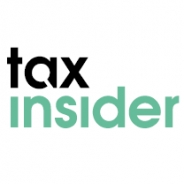
Tax Insider Looks at 10 Tax Savings Tips for the new tax year.
1. Personal Allowance
Everyone is entitled to a tax-free personal allowance - including children. A check should be made to ensure that everyone in the family is fully utilising theirs.
2. Age Allowance
In the year that you turn 65 you will be entitled to an increased personal tax allowance (£10,500 for 2012-13). However, once income reaches a certain limit (£25,400 for 2012–13) a much higher tax rate may be paid on every extra pound of income received. Taxpayers with annual income close to that level may consider transferring income-producing assets or investments to a lower-earning spouse or partner. Those already entitled to Age Allowance in 2013/14 - i.e., next tax year - will continue to receive Age Allowance but those who turn 65 after 5 April 2013 will no longer be entitled to the additional allowance.
3. Capital Gains Tax
The annual Capital Gains Tax (CGT) exemption is £10,600 for 2012–13. This amount can be worth up to £21,200 for a couple. Unused exemptions cannot be carried forward to the next tax year, so if you’re thinking about selling, say, a bundle of shares, consider selling some at the end of one tax year and some at the beginning of the new tax year. You could use the exemptions for two years, and potentially save nearly £6,000 in tax.
4. Capital Losses
Capital losses (for example on the sale of shares) can be carried forward and offset against any gains made in future years – so keep records of any transactions.
5. Family Income
Consider transferring savings accounts into the name of a spouse or partner who pays tax at lower tax rates. Assets that have built up a liability to CGT can be shared in such a way as to utilise both individuals’ annual CGT exemptions.
6. Avoiding Inheritance Tax
Consider making gifts sooner rather than later to reduce a possible Inheritance Tax (IHT) liability on that money. Children and grandchildren for example, are entitled to the assets free of IHT providing you survive for seven years after making the gift.
Everyone is entitled to an annual IHT gifts exemption of £3,000. Therefore, every time you give £3,000 away, the value of your estate for IHT purposes is reduced. Moreover, if the exemption isn’t used one year, it can be carried forward to the next (but no further).
7. Household Expenses
Many people who run businesses from home are unaware that they can claim a proportion of the household expenses against their business income, such as heating, lighting, and telephone calls.
8. Household Expenses for Employees
Employees who are required to work from home can receive a tax- and NIC-free payment of up to £4 per week (from April 2012) towards household costs (and possibly more – see ‘How to Pay More Than £4 per Week Tax-Free to Homeworkers’ in this Tax Insider).
9. ISAs
For 2012-13 you can save up to £11,280 in tax-free Individual Savings Accounts (ISAs). Junior ISAs, which are similar to existing ISA products, are now available to children. Up to £3,600 a year can currently be invested in such accounts.
10. Pension Contributions
Paying into a pension can still be one of the most tax-efficient investments available. Regardless of income, everyone can get tax relief on payments of up to £3,600 a year. This means that the investor pays £2,880, but £3,600 is invested towards a future pension entitlement.
If you utilise the tax breaks listed above and which are applicable to your circumstances then you could be saving a tidy sum!



Please register or log in to add comments.
There are not comments added